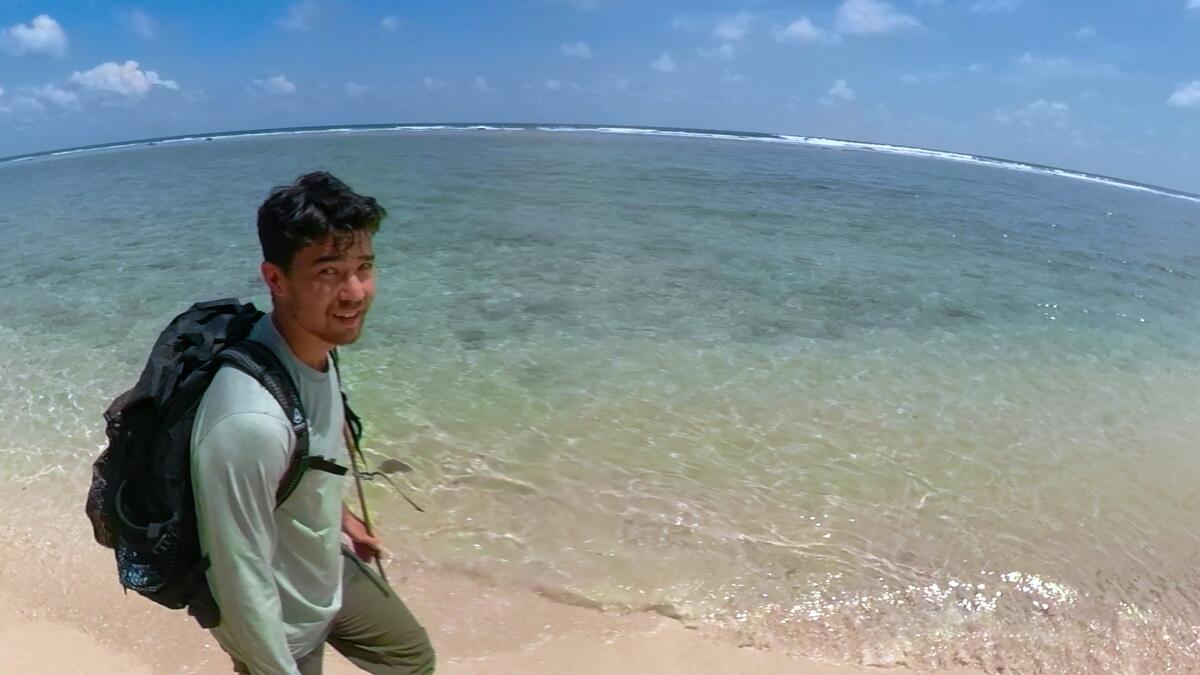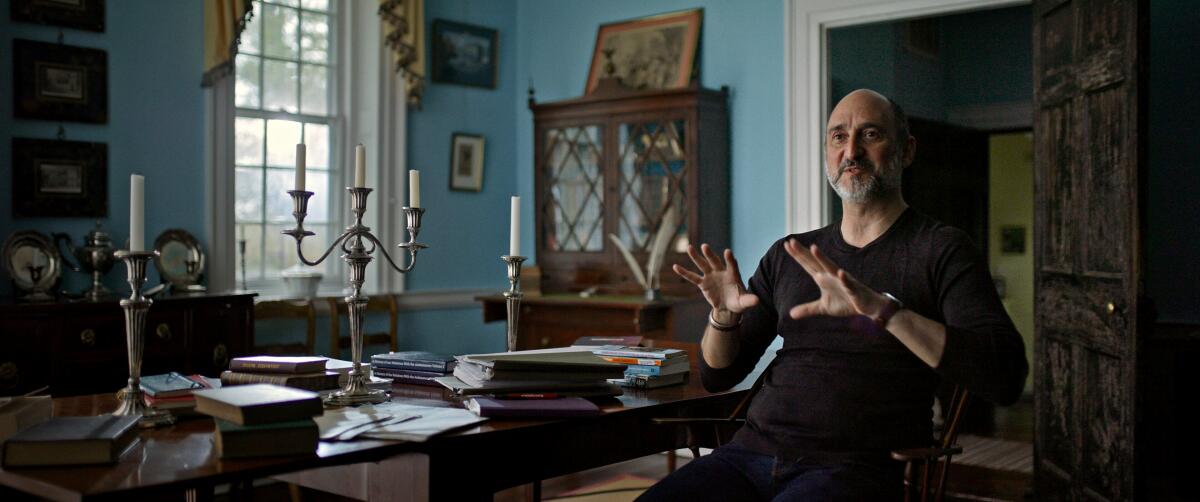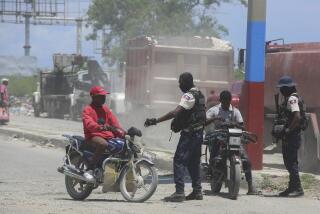Review: ‘The Mission’ shows the dangers of blind faith and the enduring stain of colonialism

- Share via
When energetic 26-year-old American missionary John Chau, after 10 years of secret planning, tried to bring Christianity to the island-locked Sentinelese people in 2018, his illegal venture ended immediately in his killing by their hands. Or, another way of putting it: When the fiercely protective people of North Sentinel Island encountered a foreigner who ignored their warning to stay away, they successfully defended themselves from a threat that in the past had brought disease, violence and death.
Those equally powerful but unevenly publicized stories meet to sobering, thoughtful effect in the documentary “The Mission” from filmmakers Jesse Moss and Amanda McBaine, who intelligently explore the same self-mythologized “civilizing” of isolated cultures that resulted in annihilating episodesof colonialism, but with that lens applied to a missionary’s more intimate, romanticized and accepted form of invasion.
Probing the details of Chau’s tragic pursuit, from his inspirations to the evangelical networks that supported it, is the filmmakers’ investigative framework, but the film’s accompanying inquiry into remote missionary work itself — particularly its willful delusions about help and harm — provides searing context for what fueled a devout young man toward a dangerous clash of cultures.
Our understanding of Chau, an outdoorsy suburban kid with a taste for adventure stories in far-flung lands (read: colonialist fantasies), comes from a handful of sources, stitched together with animated sequences, photographs and videos. Diary entries, letters and posts of Chau’s — including his 26-page “master plan” — are read by an actor.
His words’ boyish fervor for a life prescribed by Jesus (all the way up to his last anxious writings) are offset by the more somberly questioning tone of his Chinese immigrant father’s letter to the filmmakers (in lieu of being interviewed), also read by an actor, which lament an estranged son hurt by a broken home and lost to religious fanaticism. Interviews with friends, mentors and supporters try to fill out the rest — they speak with admiration for Chau’s unwavering commitment to spreading the Gospel to the “unreached,” but also, in some instances, convey barely constrained sadness for what didn’t have to be.

Alongside that portrait, like a running commentary on Chau’s mind-set and the consequences awaiting him, is enlightening testimony from those who’ve been there. Historian Adam Goodheart recounts his own trip to North Sentinel to write about the dreamy pull of anthropological escapades. His experience and wider research on past visitors — colonizers who kidnapped people or who carried fatal viruses — dulled into a lasting regret about his excursion, knowing Chau took inspiration from his 2000 article. Another clear-eyed presence is former missionary Dan Everett, who traces his decades among hunter-gatherers in the Amazon. He made friends but no converts, spurring a total loss of faith and a belief that missionary work is inherently unethical.
Moss and McBaine use archival footage well, spotlighting films, news stories and features (like the glossy 2005 missionary martyr drama “End of the Spear”) that heroically portray trips into Indigenous lands while denying any individualism to the people. Even National Geographic, the film’s distributor, isn’t absolved of its historical role promoting an exoticized portrait of “lost tribes” that westerners want to believe are ready for their closeup. These types of savior stories, Goodheart notes, ultimately only reveal who we are, not who they are.
“The Mission” is in no way an anti-religion screed — or even anti-missionary. Chau was someone with a likely messiah complex, not some proselytizing relief worker or house-builder in a poor country. What good might he have done instead, legally and safely, almost anywhere else? Rather, in its voices tinged with sorrow and re-examined history, this expertly tuned film is simply pro-introspection: a heavy-hearted look at an unnecessary death and a cultural superiority long deserving of scrutiny.
'The Mission'
Rating: PG-13, for full nudity, some violent content, thematic elements and sexual references
Running time: 1 hour, 43 minutes
Playing: Now in limited release
More to Read
Only good movies
Get the Indie Focus newsletter, Mark Olsen's weekly guide to the world of cinema.
You may occasionally receive promotional content from the Los Angeles Times.










